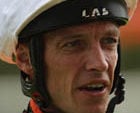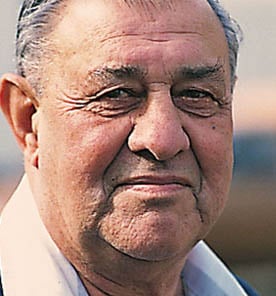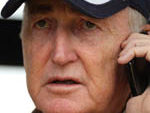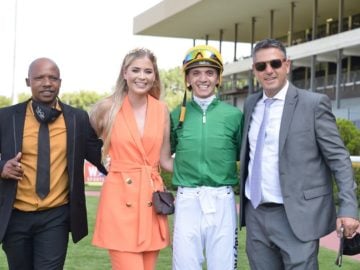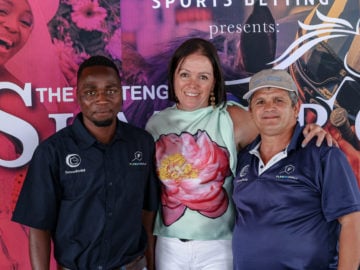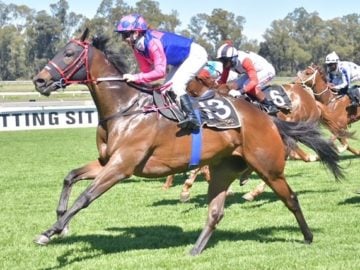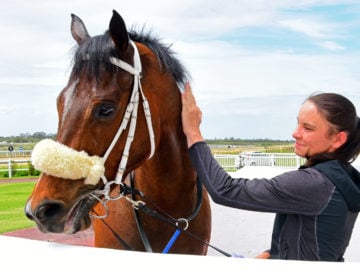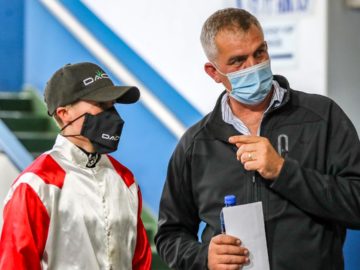Trainer Alan Greeff saddles the gallant stayer October Club in this weekend’s Eastern Cape Racing Festival major feature race, the R350 000 Gr3 Betting World Algoa Cup on Sunday. With a family tradition steeped in the historic fabric of local racing, Greeff will not be too perturbed that he has had stronger chances in years gone by.
Mike Moon recently wrote an interesting piece about Alan’s late Dad, Stanley, a giant of the turf in this country in a bygone era.
Stanley Greeff became one of South Africa’s best trainers and the towering figure of Port Elizabeth racing for decades.
He saw those first racehorses as they disembarked from a train at Wynberg in Cape Town where his father, Cornelius, was the newly installed station master – having been promoted from Worcester station, where Stanley was born. Struck by the size and beauty of the animals, the 12-year-old followed them as they walked to the nearby racecourse.
He passed through the gates of Kenilworth in the wake of the string as it arrived to compete at a meeting. And it was no ordinary meeting. It was 2 November 1940: Met Day.
Stanley got himself part-time jobs at Milnerton stables and rode in amateur races at Durbanville.
A schoolmate and fellow rider was Terrence Millard, who became a lifelong friend and a great trainer himself. Other rivals at the time included Syd Laird, Ralph Rixon, Peter Kannemeyer and Theo de Klerk – all of whom later made their mark in racing.
Stanley graduated to professional riding and had winners. “But Dad always said he wasn’t much of a success as a jockey,” says Alan. “He was too tall and too heavy.” A photo on the wall of Alan’s office proves the point, showing a lanky-looking Stanley aboard a winner at Durbanville in December 1945.
He became assistant trainer to Sonny Whiteford and then to Sebi de Meillon at Milnerton. The legendary Syd Garrett occupied the next-door yard and Stanley took advantage of the chance to learn from a master, absorbing everything he could.
Taking his own licence in 1952, Stanley achieved moderate success with limited stock. His first good horse was Sun Lass, a filly whose elevation to stardom was a tale Stanley told with relish all his life.
Sun Lass won 10 races, including the Paddock Stakes, and placed fourth in the Met. As a broodmare her winning offspring included Durban July victor Yataghan and her female progeny also produced much black type.
In a fiercely competitive era, it wasn’t easy going in Cape Town. Apart from “setting up” betting coups – as most trainers did at the time to keep heads above water – Stanley took to raiding the lesser centre of Port Elizabeth. His horses travelled up the coast overnight on the Union Castle mail ships that plied the East Coast.
Good friend and ace jockey Johnny Cawcutt rode many of the horses on these successful raids and Stanley grew to love PE and its friendly people. He decamped up the coast in 1962, working as assistant to trainer Fred Pienaar before setting up on his own at the old Arlington at Walmer.
“He battled for a long time,” observes Alan. “He was certainly not an overnight success in PE. But in those days all the trainers helped each other and he survived.”
Stanley’s marriage in 1968 to Lorraine, his second wife and mother to Alan and Jenny, marked the beginning of ascendancy on the track.
The Greeffs lived for many years on a smallholding at Greenbushes, near present-day Fairview, and Stanley kept cows, goats and chickens, made butter and grew veggies with the same dedication he had for horsemanship.
Through the 1970s, ’80s and into the ’90s, he won every major race on the PE calendar. Trainer Andy Smith provided the stiffest opposition – as his son Gavin Smith now does for Alan Greeff. (Indeed, the names Greeff and Smith are the only ones you’ll see on an Eastern Cape training honours board for the past 40 years or so.)
Halo Stables is named after the filly Halo, who was Stanley’s 100th winner of the season in 1980. He’d earlier broken Millard’s South African record of 90 winners in a season and went on to set a new mark of 105 – a phenomenal achievement from relatively few meetings.
A name that is often mentioned in relation to Stanley Greeff is Gavin Venter.
The rider joined him as an apprentice in 1975, fresh from the SA Jockey’s Academy, and they stayed together as a team for 35 years.
“We worked very well together; we respected one another. We won Eastern Cape trainer and jockey championships together 16 times in a row,” says Gavin, now an assistant trainer to Tara Laing at Fairview.
“I rate Stanley Greeff the country’s best trainer of fillies and mares,” declares Gavin. “He just had a knack with them; it came naturally. He never pushed any horses too hard, but was particularly careful with fillies. And once he got them to the top he could keep them there for quite a while.”
For all his filly sensitivity, Stanley was no softie.
“He was tough as teak to work for,” grins Alan, who learnt this first-hand when he became an assistant in the 1990s after a lengthy educational programme mapped out by his father that took in learning at the hands of the Millards and at top USA farms. “He didn’t take any nonsense and was respected for it.”
Gavin Venter concurs: “He was a very hard taskmaster. Not many other jockeys stayed with him too long. I remember once I rode six winners on one day and our apprentice, Delano Pieterse, rode another. But I lost out in the main race, running a short-head second on a 33-1 chance. Mr Greeff didn’t speak to me for a week he was so upset at not winning every race on the card!”
In the mid-1990s, Stanley handed over to Alan but maintained an active daily interest in the operation. Even as he entered his 80s and fell ill, Stanley would insist on going to gallops and the races.
“We’d drive him to Arlington and park the car next to the stewards’ room, above the steps, with a view of the track,” says Allan. “We’d set up a table and chair for him and he’d enjoy a whisky, watch the action and chat to all the people who dropped by to say hello.”
Alan says his father “ate, drank and slept horses and racing” and often said he’d lived a most rewarding life and wouldn’t want to change any of it.
Stanley was diagnosed with lung cancer in April 2010 and passed away in August that year. Another veteran PE trainer, Nic Claassen, died on the same day, leaving the region’s racing community in shock.
Edited extract from tabnews
‹ Previous
